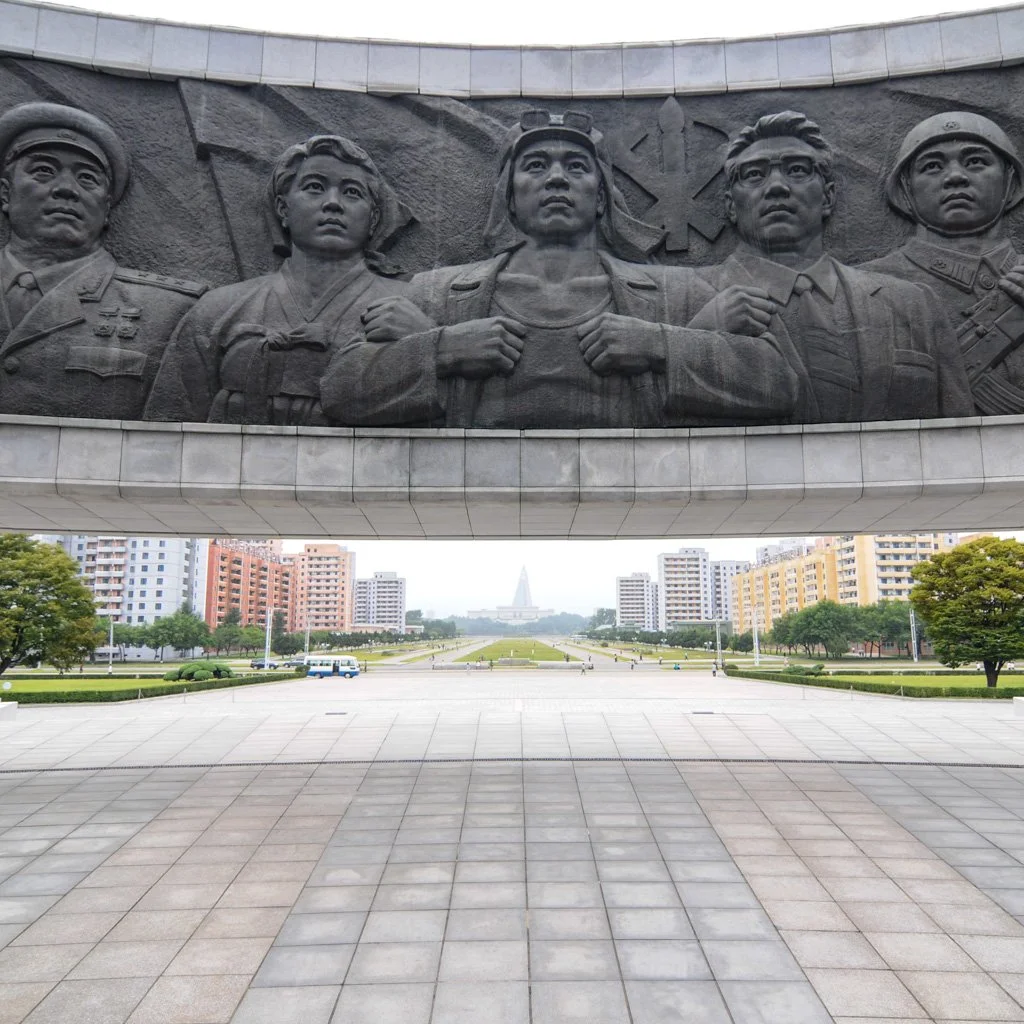The third New Year's message of the Kim Jong Un era was a broad, sweeping affair, making policy priorities difficult to pinpoint: when there are so many areas to focus on, it rather diminishes the idea of focus at all. This year's key slogan is "Let us raise a fierce wind of making a fresh leap forward on all fronts of building a thriving country filled with confidence in victory!" There is, it seems, a leap forward in increasing the word counts of slogans at any rate.
Spending Christmas in Pyongyang
On Dec. 24, my plane landed in Pyongyang to a wintry landscape. The ground was peppered with snow and the chill of Pyongyang, in contrast with the lighter winter in Beijing, was a shock. In more pleasant circumstances, I would not have come back so early during winter, over Christmas, especially not after having just visited the previous month. But given the news coming out of North Korea this period, I cannot help but check-in to see how programs for 2014 might be affected.
Interview (Chinese) - 5 years of CE
There are a number of factual inaccuracies in this article, which is not surprising as it was partly translated from English to Chinese, and partly done in rusty-Chinese. Also some tabloid-ish exaggerations by the reporters. But otherwise, it does capture well some of the frustrations of working in North Korea.
Economy Less-Second Guys
It is still far from clear where the chips will fall after last week's dramatic ouster of Jang Song Taek. However, several men who were both associated with him, as well as with the 2002 reforms and with more recent economic tickerings such as the 6.28 policy from last year are still, at least for now, in the game. Pak Pong Ju, the Premier was on a high profile state funeral committee this week. (Second position, no less!) He is most closely associated with the reforms of 2002.
Post-Jang Chinese Investors
So, what’s up? Any North Korea news lately? Just kidding. Like all Korea-watchers we’ve been consumed by the ouster of Jang Song Taek, coming up with theories and explanations, some of which we might put in writing. For now, one small thing we’d like to zoom in on is the issue of investor perception. We sensed some positivity in recent months, with provincial officials hoping for a positive political environment now that the ugliness of Kaesong’s closure was beginning to recede.
CE at TED@NYC - Just in case
Geoffrey heading to Pyongyang last week of December to sort out some things and to assess impact of recent events. Putting this up just in case...
Customer Expectations
Our workshop leaders spend a decent amount of time talking to North Korean audiences about customer expectations internationally, whether industrially or at the retail level. On a recent site inspection of a new hotel in Wonsan, and as if to illustrate some of the issues of which we try to make our audiences aware, we came across this thing:
Up the Mountain, Down to the Villages
Earlier this year in March, North Korea decided to set up Special Economic Zones in all the provinces. On the back of this policy, we were invited to bring our training programs in economics, business and law to every province. Obviously, given our limited resources, this was impossible. But the request gave us an opportunity to debate how Choson Exchange should involve the provinces in our programs. This review of our province strategy culminated in meetings with provincial officials (example), and a workshop in Wonsan that saw 5 provinces send representatives to participate. If people in Pyongyang sorely needed knowledge and exposure to bridge the gulf of understanding with people from the rest of its region, people in the provinces clearly were even more needy. We decided that we would start a program and dedicate part of our resources to the provinces.
Chongjin vs. Hamhung, Chilbo vs. Gumgang
We recently visited Rason for the 3rd time in as many years, where we are hoping to begin programs in 2014. One of the things that we’ve been hearing, both in Pyongyang and elsewhere, is that the government is planning on creating up to 13 Special Economic Zones, including the ones already in existence. Asahi Shimbun thinks the number 14 is luckier. As the DPRK’s awkward history of SEZs has shown, these will likely not all be booming successes, but they will introduce several important concepts to investment attraction in the country. One crucial change will be that of regional competition.
Emerging outlines of North Korea's economic policy
WPK Party Secretary Kim Jong Un’s speech on March 18 at the nation’s first light industry convention in 10 years reveals quite a bit about the thinking on economic policy among some of the country’s elites. Some changes on the ground provide additional information on how these thinking is being implemented as policy. In his speech, Kim Jong Un urges an export-oriented import-substitution policy. On the export front, he calls for consumer goods “favored by the people…that receive good reviews” and are “impeccable in the global marketplace.” A key policy that appear to follow up on this is the focus on expanding Special Economic Zones (SEZ) to every province with an eye towards having companies invest to produce exports. In addition, there is a requirement for joint-venture companies selling to the domestic market to export a stipulated percentage of their products.




